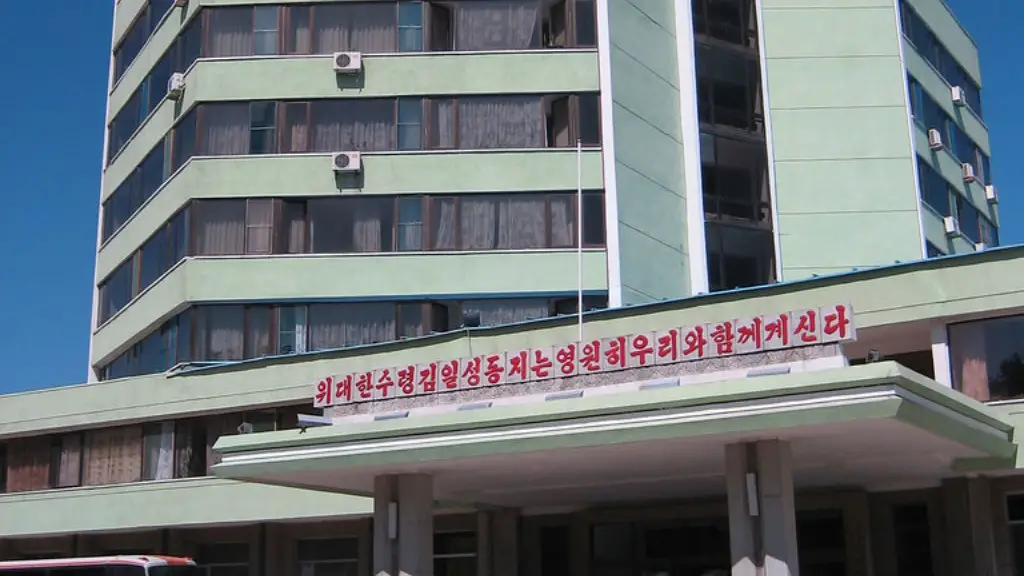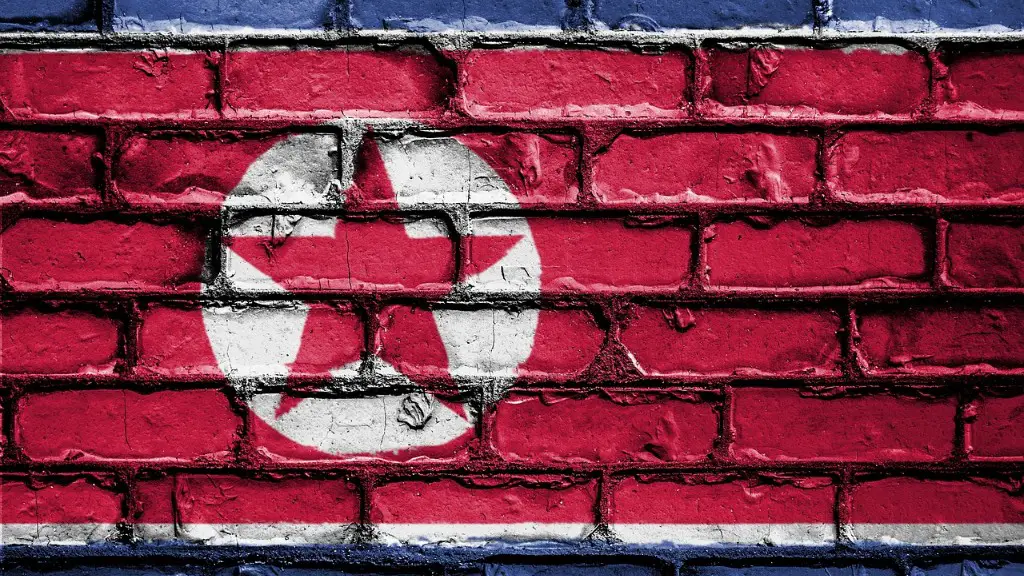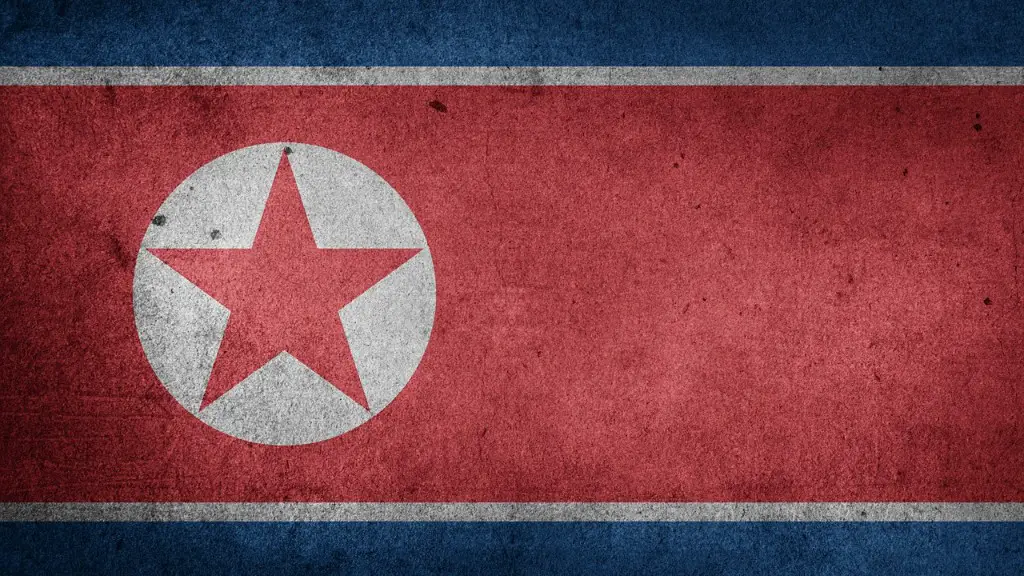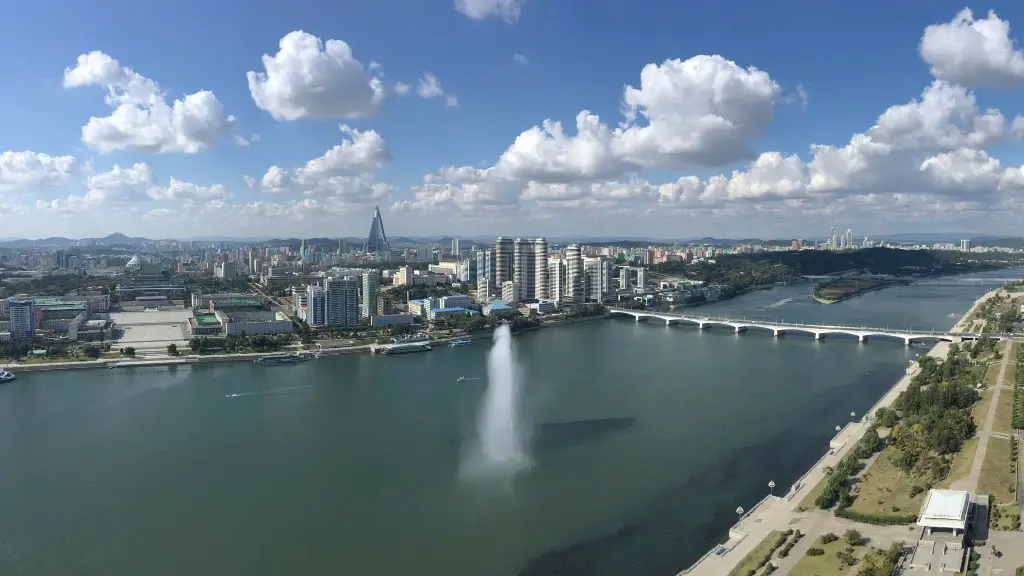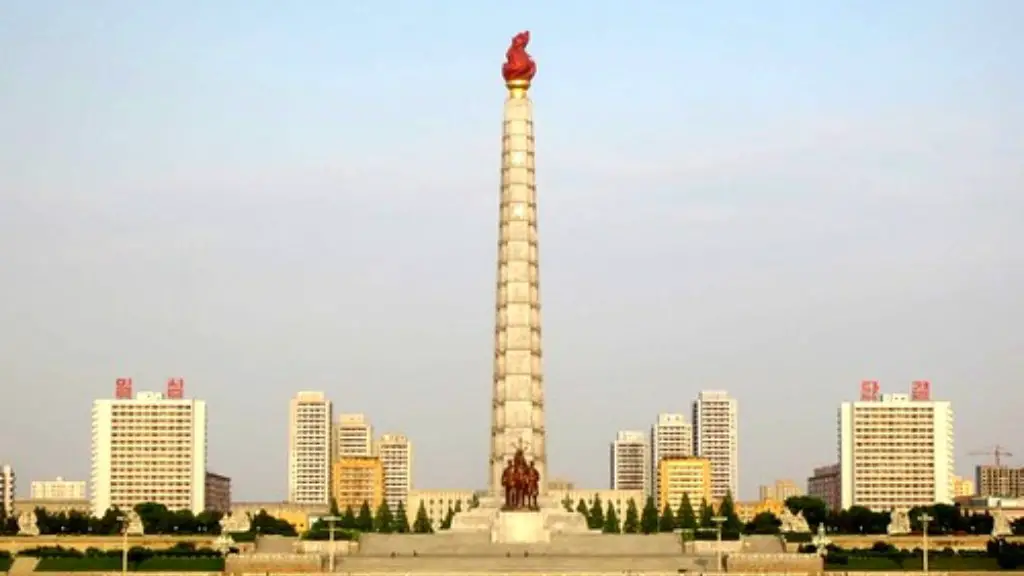At present, the threat of conflict between North Korea and the United States is seen as one of the greatest dangers to world security. Consequently, it is vitally important that the world understands where in the United States might be at risk from attack from North Korea. It is a complex situation, with many conflicting opinions from experts from both sides.
North Korea’s nuclear arsenal consists of both warheads and long-range ballistic missiles, which could be used to deliver a strike anywhere in the United States. It is estimated that North Korea has anywhere between 15-30 nuclear warheads at its disposal. The estimated range of the Hwasong-14 missile is close to 8,000 miles, and the Hwasong-15, which was tested in 2017, was claimed to be capable of reaching any point in the continental United States.
The United Nations has consistently condemned North Korea’s nuclear program, and multiple sanctions have been imposed on the country, yet they continue to develop their weapons. This has caused immense worry among international security experts and politicians concerning the safety of the United States.
The opinions of experts vary on where North Korea might strike. Some believe that Hawaii, which is closer to North Korea than mainland United States, is the most likely target, since it has traditionally been viewed as a symbol of US power. However, others point out that North Korea is unlikely to take such a dramatic step, and that more likely targets would be the US territory of Guam, or the mainland US cities of Los Angeles or San Francisco.
Furthermore, the possibility of North Korea launching a cyber attack must also be considered. Such an attack could cause critical damage to the US economy and infrastructure, something that would likely be far more attractive to North Korea than a traditional military attack, as it could be carried out easily and anonymously.
Given the complex nature of the situation, it is impossible to predict precisely where North Korea might strike. The unpredictability of the North Korean regime makes it difficult to judge their next move, and the United States must remain vigilant and prepared for any eventuality.
Economic Impact
If a conflict were to break out, the economic repercussions could be extensive. The countries involved would almost certainly see an immediate jump in their national debt, while their economies would likely be weakened in the long-term. The economies of other countries in the region, and even abroad, could be adversely affected by a North Korean attack, as it could significantly disrupt international trade. Furthermore, a US attack on North Korea could lead to instability and poverty in the region, which would have ramifications for neighboring countries as well.
The overall impact of a potential conflict would likely be devastating, and the United States and its allies would have to use considerable resources to mitigate the effects. In comparison, North Korea could substantially gain from a conflict, due to increased power and influence in the region. Therefore, it is vital that any potential conflict is avoided at all costs.
US Response
The United States has a variety of options available if a conflict was to arise. These range from a diplomatic solution, involving negotiations through the UN and other international organizations, to military intervention. The latter option is particularly daunting, as a conflict could escalate rapidly, leading to a potentially catastrophic outcome.
The United States has demonstrated its military strength in the region, both through targeted missile strikes and through naval exercises. Consequently, it is clear that the US stands ready to defend its interests in the region. However, the possibility of a conflict remains, and the US must be prepared to act if necessary.
The US has taken a number of diplomatic steps aimed at avoiding conflict with North Korea. President Moon Jae-in of South Korea has taken a conciliatory approach towards North Korea, and has sought to reduce tensions by opening diplomatic channels with the North. Similarly, the US has worked with China to place sanctions on North Korea, and to prevent further nuclear proliferation.
However, despite these steps, the situation remains fragile. North Korea continues to develop its nuclear arsenal, and the US must remain extremely vigilant. Crucially, while dialogue must be encouraged, the US must also be prepared to defend itself if necessary.
Impact On The Region
The possibility of conflict between North Korea and the United States has a profound impact on the region. Neighboring countries, such as South Korea, Japan, and China, could be significantly affected, both in terms of their economy and security. Furthermore, if a conflict were to occur, it could cause considerable instability and instability in the region, which could have further ramifications in the long-term.
The situation must be closely monitored by the US, as any potential conflict could have a significant impact on global security. The tensions between the two countries have been escalating for some time, and the US must work together with its allies to ensure that a conflict does not arise.
The US has committed to protecting its allies and interests in the region, and has worked closely with countries such as South Korea and Japan to maintain regional stability. The US must continue to use diplomatic channels and continue to put pressure on North Korea in order to deter them from any aggressive and destabilizing actions.
International Responses
The prospect of a US-North Korean conflict has alarmed not only the US, but also the international community. International organizations, such as the United Nations, have been quick to condemn North Korea’s nuclear tests, and have strongly encouraged the US and North Korea to continue with diplomatic solutions.
Furthermore, countries across the world have urged North Korea to stop its nuclear proliferation and to denuclearize. Many countries have also blocked North Korean entities, such as banks and companies, from operating in their countries in an effort to put pressure on the regime. Simultaneously, some politicians, such as the UN secretary-general, have also called for targeted economic sanctions to be imposed on North Korea.
Ultimately, the international community has long been united in its disapproval of North Korea’s nuclear program. It is incumbent on the United States to use its diplomatic and military power to deter North Korea from any aggressive or destabilizing actions.
Recent Developments
In recent months, there have been signs of some small steps towards a diplomatic solution between the US and North Korea. US President Donald Trump and North Korean leader Kim Jong-un met in 2018 in Singapore, where they signed a document committing to the denuclearization of the Korean Peninsula. However, these steps have yet to be backed up with concrete actions.
Furthermore, talks between the two sides have been stalled since then, primarily due to unilateral sanctions placed on North Korea by the US. Despite this, North Korea has maintained its anti-US stance, blaming the US for the lack of progress in the negotiations.
Despite the stalemate, many international commentators have taken a cautiously optimistic view of the situation. The prospects of a diplomatic solution remain, however the US must remain vigilant and prepared to take action if necessary.
